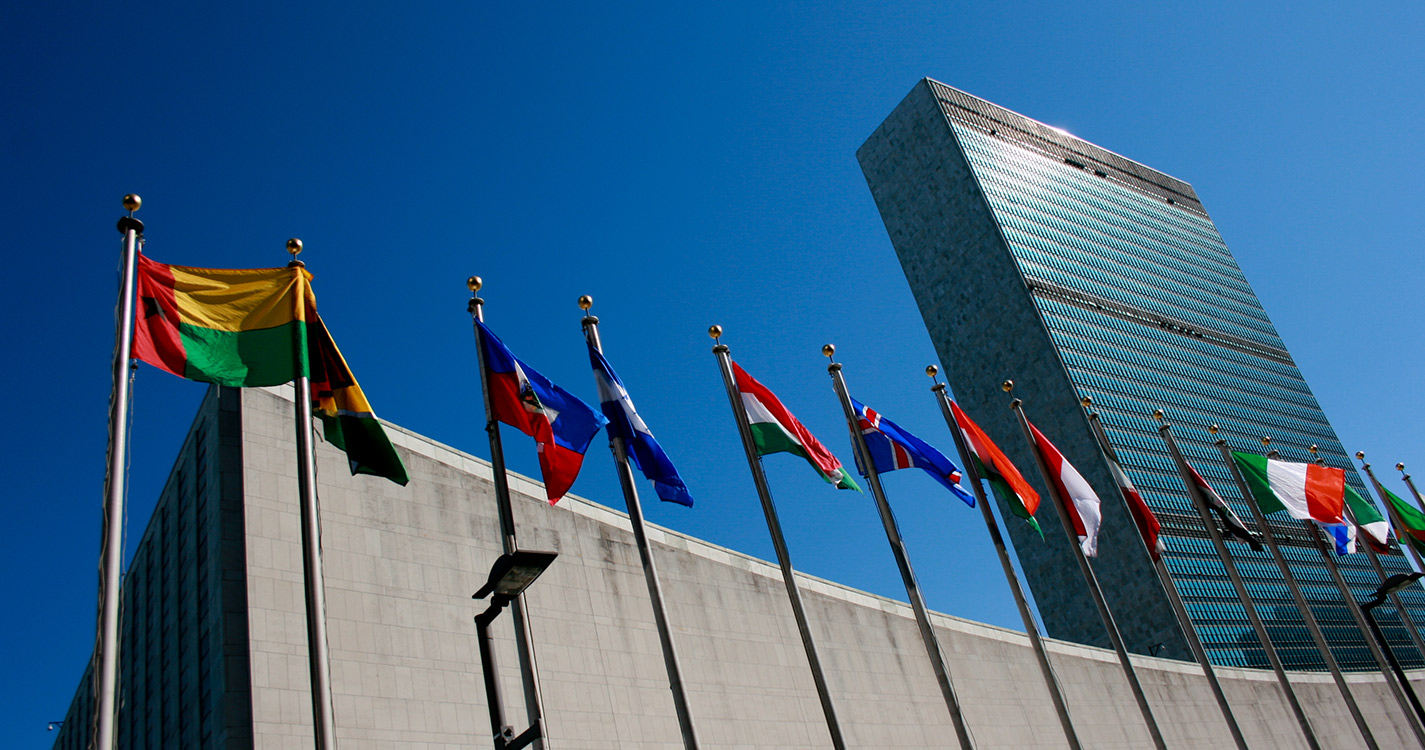Early in the morning on Oct. 2, Willamette Law students submitted a 6,500-word report to the U.N.’s Human Rights Council on the United States’ children’s rights violations.
The moment was a little unreal. During the previous five weeks, four students — Hannah Rule JD’21, Samantha Galimba JD’20, Kelsey Dodds JD’20 and Hannah Fulwiler JD’21, along with Professor of Law Warren Binford and clinical law fellow Patricia Stoneroad JD’18 — combed through hundreds of reports of abuse voiced by children who stayed in U.S.-run immigrant facilities, cited the international laws the facilities violated and, limited by word count, funneled the worst cases into the report.
Students had raced to meet the submission deadline for the U.N.’s Universal Periodic Review, the only mechanism in the world that addresses human rights violations in all 193 member states. The students’ work may be included in the U.N.’s final report.
The project was an obvious opportunity for the Child and Family Advocacy Clinic, which advances legal protections for children and provides pro bono legal representation to individual children and families in crisis.
Some students said the project was the most important of their law school careers, and they felt even more compelled to do it because of its current relevance. Rule spent the summer working as a Willamette Public Interest Law Project fellow working on the border of El Paso, Texas and returned to school wanting to have clinical experience.
“You’re working with real clients,” she said. “You’re not just doing memos on fictional people — you’re actually helping people with real problems.”
Willamette community at work
The project built on the work of Binford and other lawyers, who had collected declarations from children who had been separated from their parents or caregivers and were held in facilities nationwide from 2017–19.
Guided by Binford and assisted by Stoneroad, who advised and edited their work, students split up the declarations between each other, grouped the violations into 15 categories — such as family separation, inhumane conditions of detention and due process violations — and each wrote a section of the 17-page document.
Most of their time was spent determining the United States’ obligations under international law and identifying evidence of legal violations in the form of the children’s sworn declarations. Their main goal was to let the children’s quotes speak for themselves.
An excerpt from the report:
Accommodations. Children experience additional trauma due to the harmful conditions of detention and the degrading treatment they receive from the officials. The FSA requires all facilities where children are kept to provide “access to toilets and sinks, drinking water and food as appropriate, medical assistance if the minor is in need of emergency services, adequate temperature and ventilation, [and] adequate supervision….” These minimum standards are blatantly violated by the conditions repeatedly reported by the children.
Emblematic of the inhumane conditions, the children commonly refer to certain facilities as the “Ice Box” or the “Dog Pound” because of their freezing temperatures and cages:
“It was very cold. All the walls were metal, like a kennel for animals. We were not allowed to exercise or go outside.”
“We are held in a metal cage that is very crowded. It is very very cold. We sleep on the concrete floor without a mat only aluminum blankets.”
Students said the biggest challenge was the word limit — short, considering the hundreds of declarations they were reviewing — and the tight deadline. By the time it was over, the team had logged over 500 hours in the first few weeks of the semester.
“You want this to be the absolute best work product it can be, but you also don’t want it to be denied because it’s too late,” said Stoneroad, a second-career graduate who chose Willamette Law because of this clinic. “Students were willing to work through the night on this for several nights.”
The project was an invaluable experience. Rule, who has always wanted to work in immigration law, is only more certain of her career path while Galimba now knows she wants to lean more toward child advocacy work than being a criminal attorney.
“It really is a once in a lifetime thing to do,” she said.
About the Willamette University College of Law
The College of Law is a private law school located in Salem, Oregon at Willamette University, the oldest university in the western United States. Willamette Law boasts an innovative program designed to prepare leaders in government, private practice, and business with the lawyering skills needed in the 21st Century. In recent years, outside industry watchers such as Moody’s and The National Jurist Magazine have recognized Willamette Law for its positive job placement results. Willamette lawyers are the best dealmakers, problem solvers, community leaders, and change-makers in the most innovative and exciting region in the country. Our location — nestled in the heart of the Willamette Valley and across the street from the Oregon State Capitol, Supreme Court and many state agencies — is an advantage that cannot be matched anywhere in the region.

